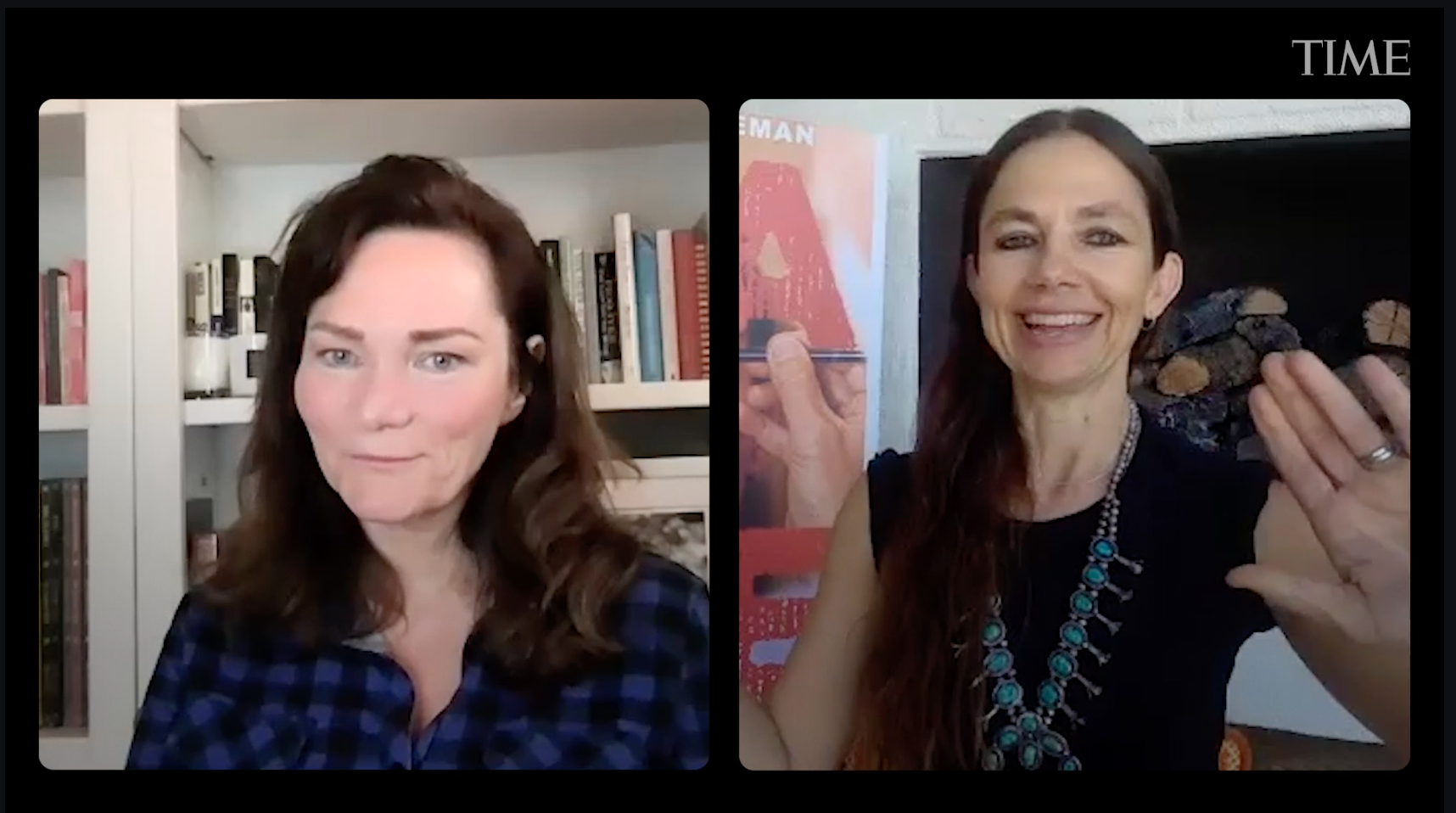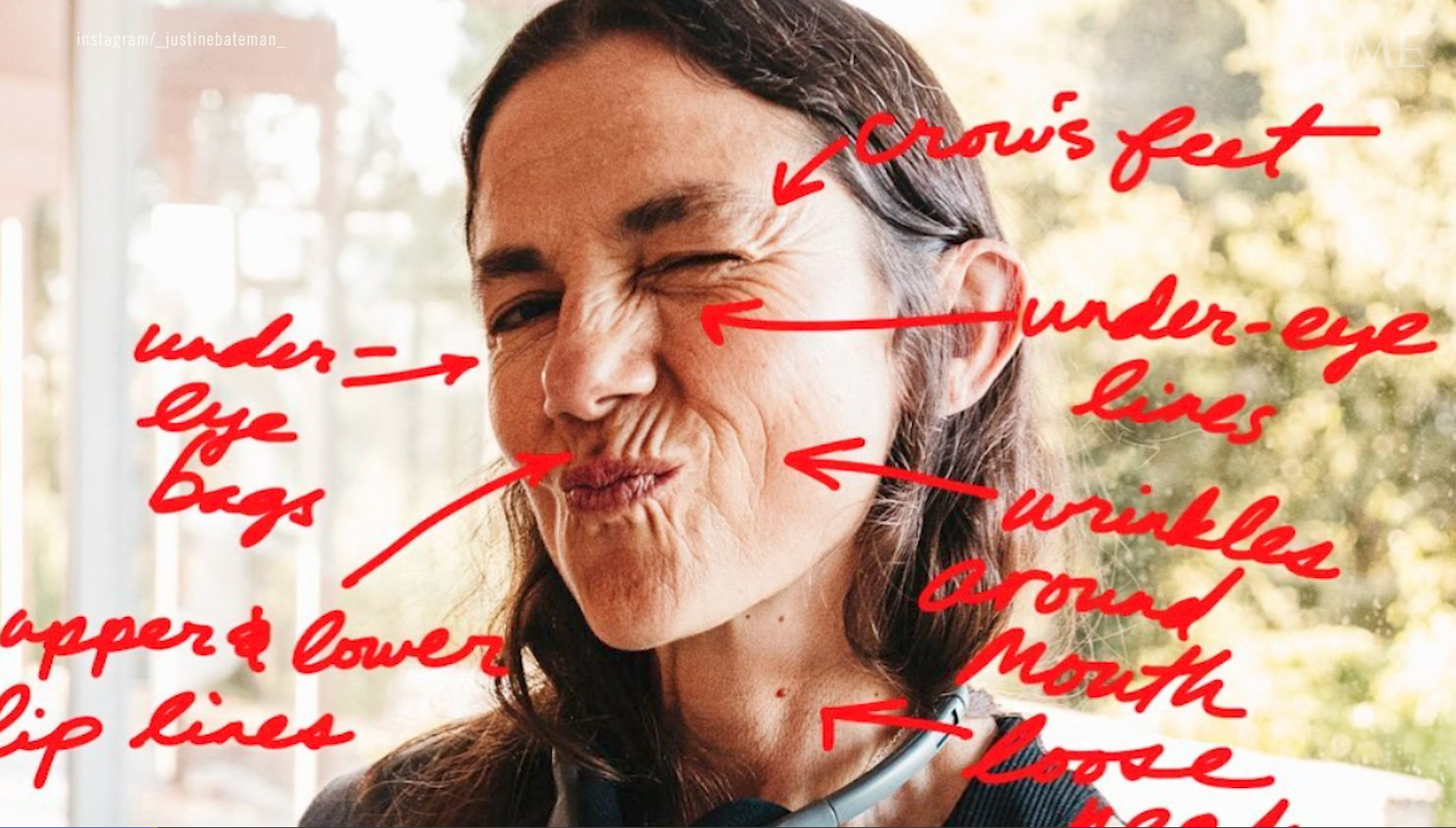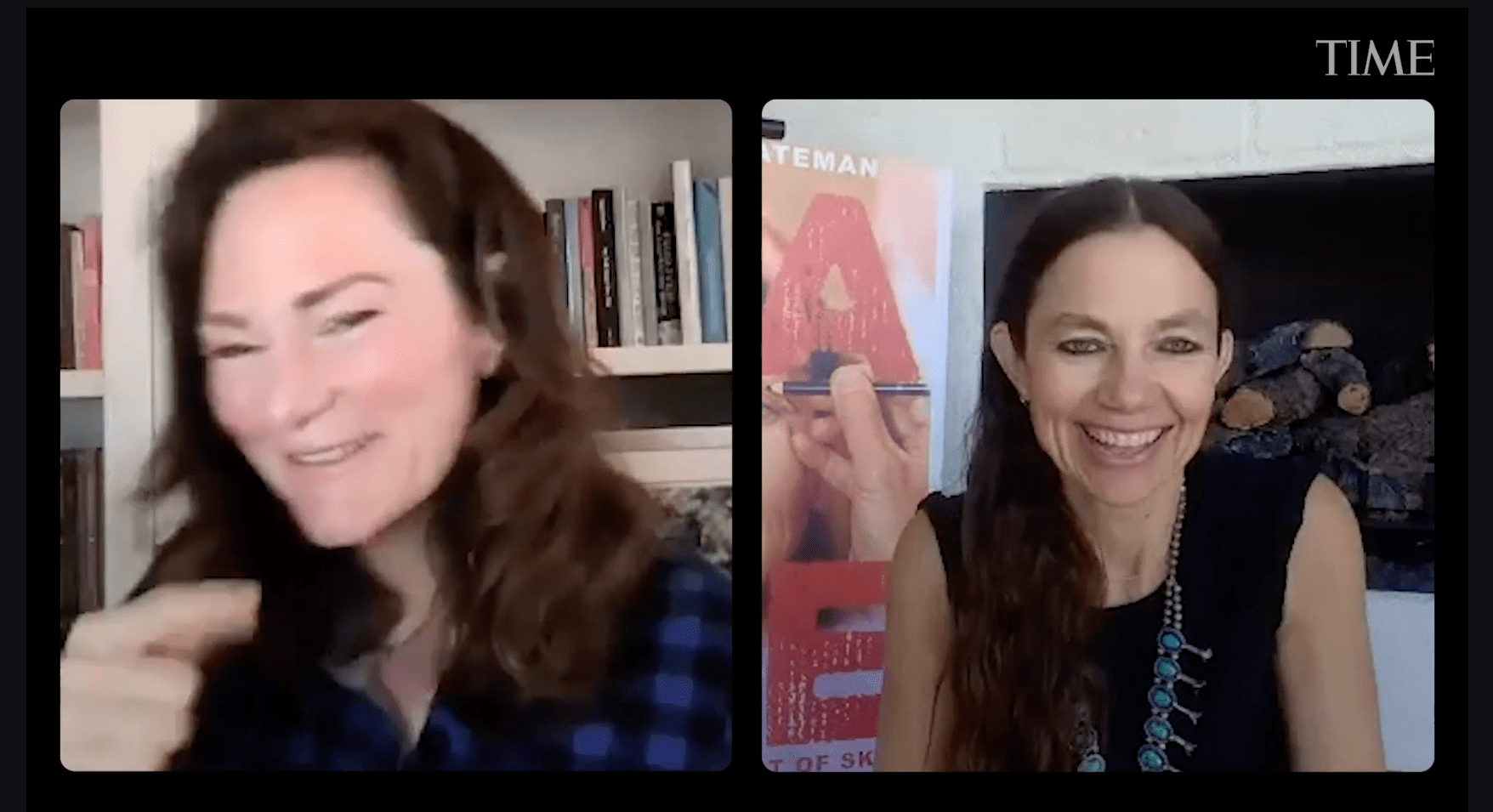Well hello! A version of this article also appeared in the It’s Not Just You newsletter. Sign up here to receive a new edition every Sunday for free.
Check out my video interview with Justine Bateman above, or read excerpts below.
Two weeks ago, I wrote about actor and director Justine Bateman’s new book, FACE: One Square Foot of Skin, in which she challenges women to stop trying to fix their faces in response to a culture steeped in anti-aging messaging.
The response was overwhelming. More than a million of you read the piece on TIME.com, and many commented on Twitter, wrote to me, or messaged Justine on social media. Most praised Bateman for dragging these secret fears into the sunlight, writing: “It’s so great to see Justine advocate for women to be themselves.” And: “The system needs fixing, not women.”
Others asked: “How in the hell do we get men to stop caring?” Some feared losing their livelihoods if they didn’t try and look younger. Many men wrote to say they thought Bateman’s unaltered face was beautiful as is; others were less than supportive. Ahem.
The book provoked discussions across the internet, so I thought it’d be great to talk to Justine about the reaction and her battle cry of #TheresNothingWrongWithYourFace.
Excerpts of our conversation are below.

On the reaction to FACE: One Square Foot of Skin
“I was not prepared at all for the magnitude of the response. I’ve had hundreds and hundreds of DMs on Instagram, saying, ‘I’m so glad someone’s talking about this.’ One woman said, ‘I work as a hospice nurse, helping people to die. And yet I’ve got my co-workers telling me I should do something about my face.’… and ‘it’s made me realize that I need to not be as critical about my face because I have two teenage daughters, and I don’t want them to be sort of tainted with that, that those kinds of thoughts for their own face.’”
On anti-aging products
“One very easy way to generate a need for a product is to find what fears already exist and then zero in on those fears.
I’m interested in eliminating the buttons that have existed in me or may still exist in me that react to those [fears]. ‘If people think my face is old, then, therefore…’ I think for every woman, there’s a fill in the blank for that. For some, it might be they’re afraid they won’t find a mate for someone else; it might be they’re afraid they won’t, their new business won’t succeed.
What I’m proposing is to forget the face. It’s got nothing to do with your face. If you fear you’re never gonna find a mate. That’s a fear that’s going to stay with you for the rest of your life, regardless of what you do to your face. So why not address that fear to get rid of it. So that then you can be free of that.”

Sign up here to receive an essay from @susannaschrobs every Sunday (for free)
On letting go of her younger face
“I always wanted to look eventually, like Georgia O’Keefe. So, all these things that start happening, you know, like, with the loose neck and the hooded eyes and stuff, and I’m like, I’m on my way! I’m gonna make it! … Now you look at my face, and you know what you’re getting… I didn’t dislike my face, but I don’t feel like it represented me the way this face represents me, you know what I mean?”
On people saying she looks ‘old’
“When people say something like that, they’re telling me about themselves. They’re not telling me about me. They’re telling me about how they look at life, and they’re telling me how they look at themselves.”
On ageism
“If somebody is running a firm, and the woman looks older, and they don’t like that, it’s an interesting thing to dig into. What do we think is going on in that man, or that woman’s head, that they don’t like that they have an employee that looks older? I mean, we can guess. It might be the rule thing, like, well, she’s not doing anything about her face. And that’s the rule you should, and she’s breaking it.
It could be: ‘Oh, I’m afraid that [an older face] indicates that we’re not innovative anymore. And I don’t want other companies to imagine we’re not innovative. And so I’ve got to get rid of that evidence,’ which is their fear. I believe then that individual has a fear that their company is not innovative. He imagines, ‘Oh, I can do this easy fix where I get rid of an older person.’ And then, ‘Okay, I’ve solved that problem.’ But he can have everybody at the company be 22, and he will still have a fear that his company’s not innovative.”
On feeling that we can’t be relevant if we look older
“I’m just saying, maybe it’s not your face. Maybe it’s the direction you’re looking. Maybe there’s a new direction open for you, and you’re not paying as much attention to it. And the timing’s right for you to go in that direction. Because I feel like everyone’s got a basket of opportunities, and skills and talents that come with you, when you’re born. And I feel like that basket does not care what gender I am, what, what the state of my face, my age, it doesn’t care.
To me, I think life is fun. You have uncomfortable things and comfortable things, but they’re all conspiring to make you more and more yourself, more who you are.”

Did someone forward you this newsletter? SUBSCRIBE to It’s Not Just You here.
More Must-Reads from TIME
- Donald Trump Is TIME's 2024 Person of the Year
- Why We Chose Trump as Person of the Year
- Is Intermittent Fasting Good or Bad for You?
- The 100 Must-Read Books of 2024
- The 20 Best Christmas TV Episodes
- Column: If Optimism Feels Ridiculous Now, Try Hope
- The Future of Climate Action Is Trade Policy
- Merle Bombardieri Is Helping People Make the Baby Decision
Contact us at letters@time.com